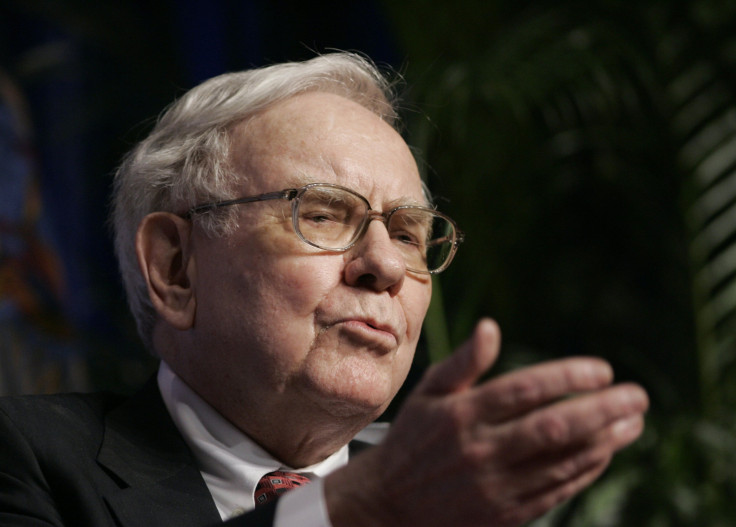Warren Buffett Tosses Out His Papers: Berkshire Sells Media Holdings To Lee Enterprises

KEY POINTS
- Buffett is a longtime lover of newspapers
- Berkshire's newspapers have seen declining earnings
- Newspapers are undergoing dramatic consolidation
Berkshire Hathaway Inc. (BRK.B), led by CEO and renowned investor Warren Buffet, has agreed to sell its newspapers holdings to publishing firm Lee Enterprises Inc. (LEE) for $140 million.
The sale includes the Buffalo News, 30 other newspapers, including the Tulsa World, the Richmond Times-Dispatch, the Omaha World-Herald, and dozens of other weeklies.
Aside from Buffalo News, Lee Enterprises had already been managing all of the other newspapers after Buffet hired them to do so in mid-2018 in exchange for a $5 million annual fee and a share of profits.
The transaction is expected to close in mid-March.
Berkshire’s newspapers group had seen earnings declines for years. In 2019, excluding the Buffalo News, they reported net income of $14.9 million on $373.4 million in revenue. Berkshire’s newspapers division and the Buffalo News had 3,685 employees at the end of 2018, down from 4,337 one year earlier.
The sale marks a rare event for Berkshire and Buffett since they almost never sell any of their operating businesses. Buffett once wrote: “regardless of price, we have no interest at all in selling any good businesses that Berkshire owns. We are also very reluctant to sell subpar businesses as long as we expect them to generate at least some cash and as long as we feel good about their managers and labor relations.”
The sale strongly suggests Buffett wants to abandon the newspaper business – for one thing, the $140 million sale price is far short of what he initially paid for these papers. Berkshire initially purchased the Buffalo News in 1977 for about $34 million in cash. In 2011, Berkshire bought the Omaha World-Herald and six other daily papers for about $200 million, including debt. In 2012, Berkshire handed out $142 million to buy 63 newspapers from Media General Inc.
Buffett sounded a different tone on newspapers back in 2012 in a letter to his shareholders.
"I believe that papers delivering comprehensive and reliable information to tightly-bound communities and having a sensible internet strategy will remain viable for a long time," Buffett wrote. "Newspapers continue to reign supreme ... in the delivery of local news. I believe these papers will meet or exceed our economic test for acquisitions."
By 2018, Buffett conceded his newspaper division had become a disappointment, but assured they would not hurt Berkshire’s bottom line.
"We bought all the papers at reasonable prices," he said. "It is not a great economic consequence to Berkshire."
As part of Wednesday’s sale, Berkshire will lend Lee $576 million in long-term financing at a 9% annual rate. These funds will be used by Lee to pay for the acquisition, refinance its $400 million in existing debt and close its current credit facility.
“We had zero interest in selling the group to anyone else for one simple reason: we believe that Lee is best positioned to manage through the industry’s challenges,” Buffett said in a statement on Wednesday. “No organization is more committed to serving the vital role of high-quality local news, however delivered, as Lee.”
Buffett added that he and his investment partner, Charlie Munger, have "known and admired the Lee organization for over 40 years" and the publisher has managed Berkshire's papers very well.
As a result of the deal. Lee will now run 81 daily newspapers, up from 50.
Lee said it expects the acquisition to push up its revenues by 87% and its adjusted profits by 40%. Lee also anticipates annual revenue and cost synergies of $20 million to $25 million.
But union officials representing the Omaha World-Herald are unhappy with the deal. Todd Cooper, a World-Herald reporter and the union’s president, told the Wall Street Journal that last year Buffett and one of his portfolio managers, Ted Weschler, met with the union and authorized it to find a new buyer for the paper. The union was still searching when Berkshire unloaded the paper to Lee on Wednesday.
“We’re blindsided here, and disappointed,” said Cooper. “I’m shocked that [Buffett] is putting his hometown newspaper into the hands of a national chain.”
Weschler said: “It would have been great to keep [the World-Herald] local. “Unfortunately, at the end of the day, [the union’s leaders] weren’t able to put a transaction together.”
Meanwhile, the newspaper industry, facing serious advertising declines, is undergoing dramatic consolidation.
Last August, the country’s two largest newspaper publishers, Gannett (GCI) and GateHouse Media, merged to form a conglomerate with almost 600 daily and weekly papers.
Since 2004, about 20% of all U.S. newspapers have disappeared.
PEN America stated that over the past 15 years newspapers have lost more than $35 billion in ad revenue and 47% of newsroom staff.
“The biggest impact of the decline [of newspapers] is on communities that are losing coverage each year, the basic news and governments that are going uncovered,” said Ken Doctor, a newspaper analyst. “People are becoming illiterate and innumerate in terms of what they know and how they can act as citizens in a democracy.”
© Copyright IBTimes 2024. All rights reserved.




















